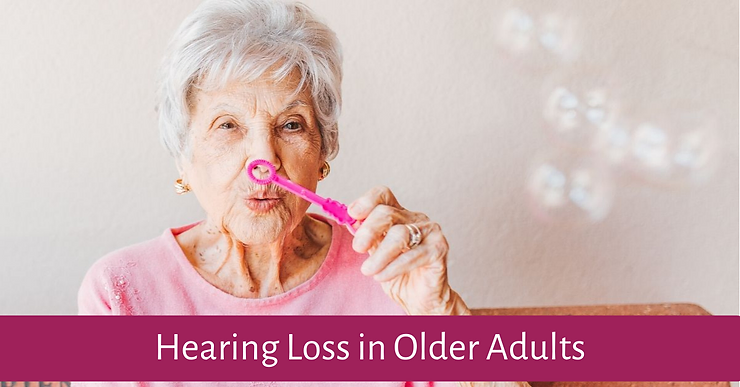
Hearing loss is among the most common medical conditions throughout the United States. Though the condition can affect people of any age, you’re much more likely to have a hearing loss as you get older. One in three adults over age 65 has some hearing loss, while half of adults over age 75 have measurable hearing loss.
Despite this, statistics have shown that most people with hearing loss don’t seek treatment. There are a number of reasons for this. One of the most common is that people resign themselves to losing their hearing as they age. They don’t realize that treatment is available, or if they do, they believe it isn’t worth the trouble.
But more research is indicating that treating hearing loss can be very important in improving the quality of life and care of older adults.
Typical Symptoms of Hearing Loss
Hearing loss tends to happen gradually rather than all at once. Because of this, many people don’t even realize there’s a problem. Many types of hearing loss affect only certain sounds, and so you may not notice that you’re not hearing as well as you used to.
You should talk to your doctor when:
-
It’s hard to hear when you talk on the phone
-
You can’t follow a conversation if more than one person is talking
-
You have to ask people to repeat themselves often
-
The volume on the TV needs to be much higher than usual
-
Background noise makes it difficult to hear
-
Everyone else seems to be mumbling
-
It’s hard to hear women and children speak or to decipher other high-pitched noises
Hearing Loss Types
There are many kinds of hearing loss that can be caused by dozens of different conditions. Every person’s circumstances and experience will be slightly different. Audiologists tend to sort hearing loss into two main categories.
Sensorineural
Sensorineural hearing loss is a type of hearing loss that’s caused by damage to your auditory nerve or inner ear. The majority of cases involving this kind of loss are permanent. However, a hearing aid can often be used to help treat the hearing loss and restore some hearing.
Conductive
Conductive hearing loss isn’t caused by damage to your inner ear. Instead, it occurs when sound waves are unable to get to your inner ear. Since the inner ear doesn’t receive the waves, it can’t send vibrations through the nerves to your brain.
Conductive hearing loss can be the result of a blockage like a buildup of earwax. It might also occur when fluid is trapped in the ear, or when your eardrum is punctured. Treatment varies depending on the cause, but surgery or removal of the blockage usually restores the hearing.
Sudden
Sudden deafness or hearing loss occurs when a person rapidly loses their hearing. It might happen instantaneously or gradually over up to three days. Sudden hearing loss is a medical emergency that must be evaluated and treated immediately.
Age-Related
It’s natural for you to experience some hearing loss as you get older. This type of hearing loss is called presbycusis. Some people may be more genetically susceptible to more severe age-related hearing loss. Researchers believe it’s related to changes that happen in your auditory nerve and inner ear. A person with presbycusis might have trouble tolerating loud noises or hearing conversations. Most age-related hearing loss affects both ears equally.
Quality of Life in Older Adults with Hearing Loss
Hearing loss can impair your quality of life, especially when you’re an older adult. It can be frustrating to struggle to follow conversations or need to ask people to repeat themselves. At worst, hearing loss can be emotionally isolating and cause serious unhappiness.
Early treatment of hearing loss is best. But most adults with hearing loss never seek treatment at all. If you’re an older adult with hearing loss, it’s never too late to start seeking treatment. Customized hearing aids can often improve your hearing dramatically, and an audiologist can show you how to use them. There are also surgical options available for more severe hearing loss
